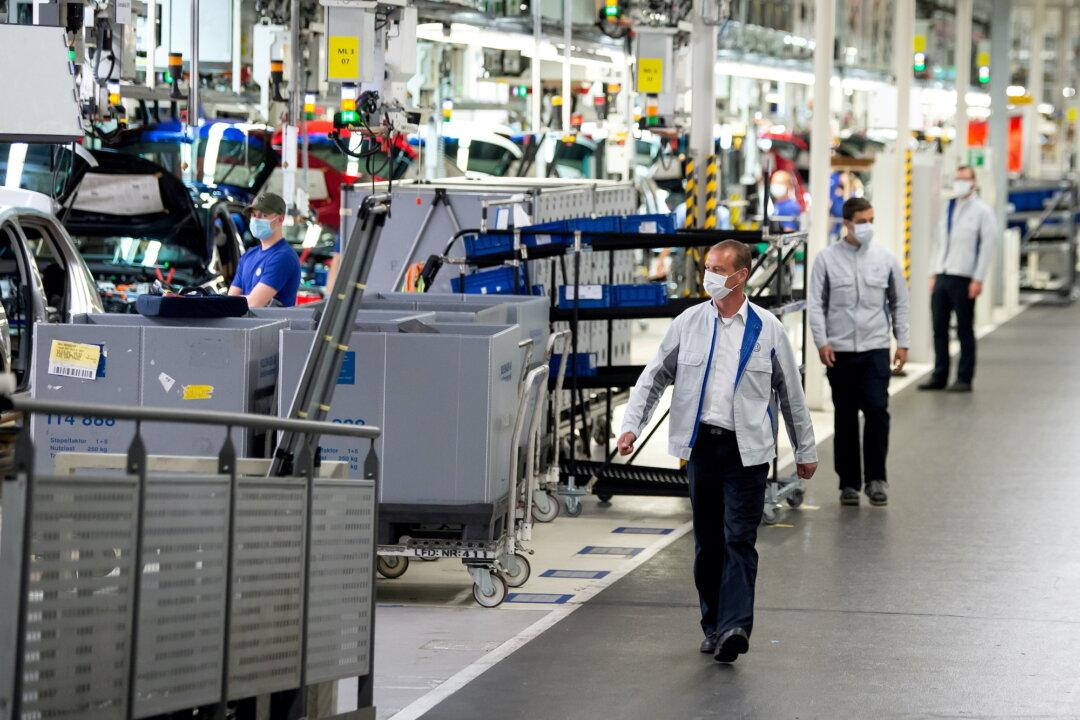New orders in manufacturing declined in April for the third time in a row in Germany, according to the latest data from the Federal Statistical Office (Destatis).
On a seasonally and calendar-adjusted basis, new orders in April fell by 2.7 percent compared to March, a June 7 press release said. Excluding major orders, new orders decreased by 1.2 percent.





